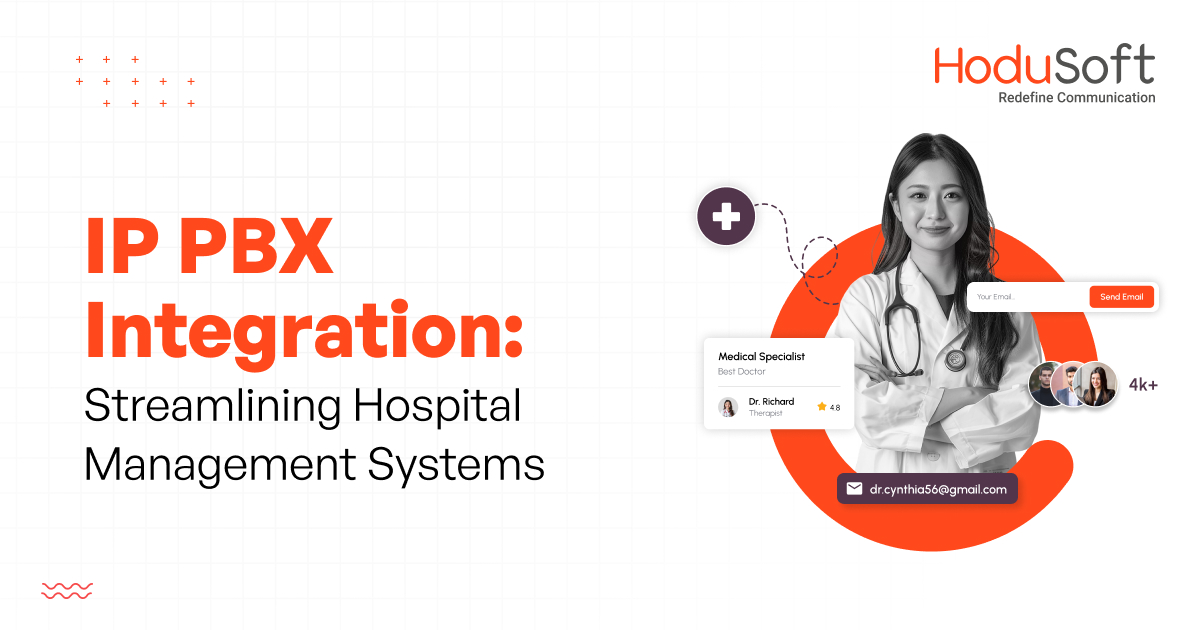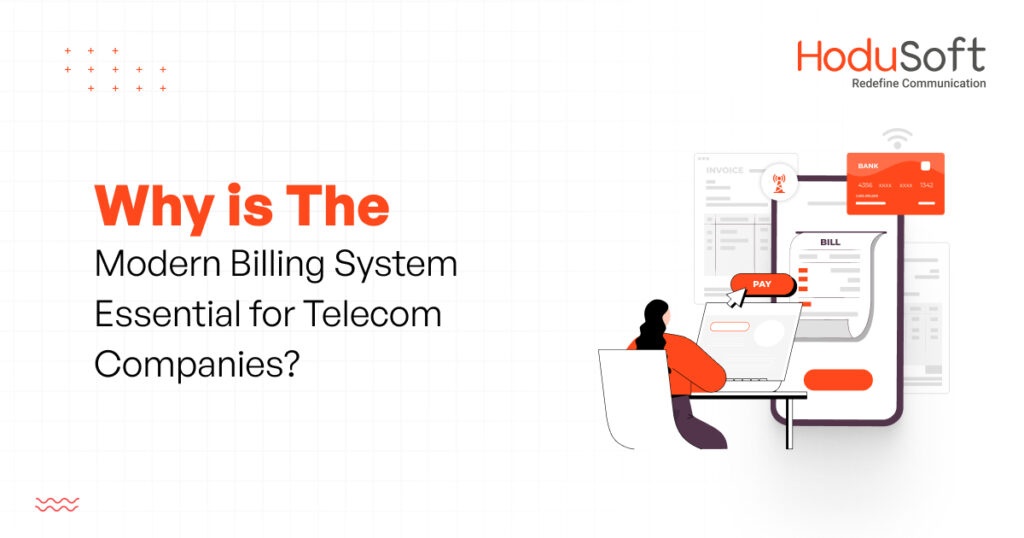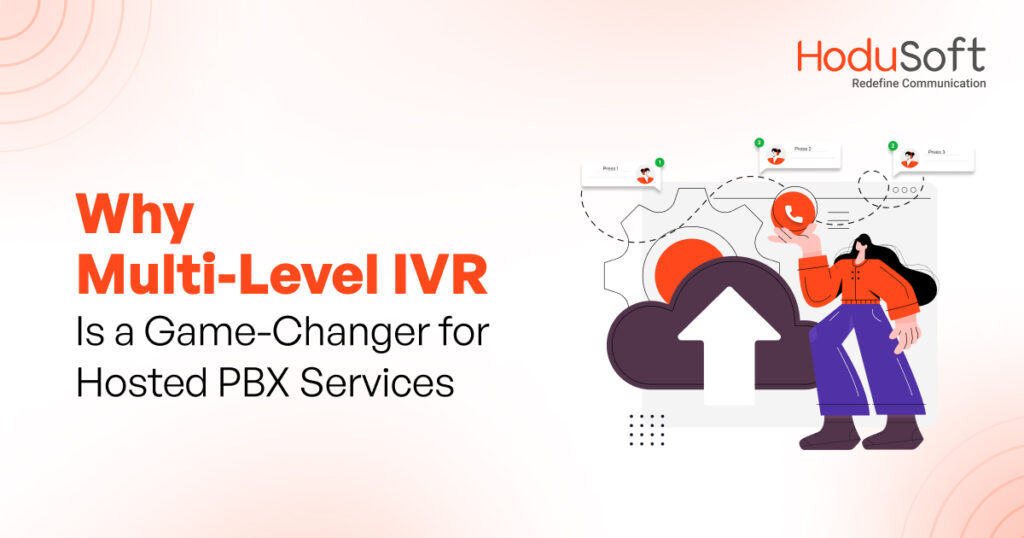From Fragmented to Streamlined: How IP PBX Integration Enhances Hospital Management Systems?
For hospitals and healthcare organizations, ensuring the right care for patients is at the heart of everything they do and every strategy they design.
Hospitals not only need to focus on treating and curing patients but they also need to ensure that they provide the right patient service and communication to handle incoming calls and schedule appointments in a timely manner. To ensure that, many hospitals and healthcare providers use Hospital management systems (HMS).
As per a report released by Straits Research, the international HMS market size is projected to grow at a compound annual growth rate (CAGR) of 17.7 percent from USD 5.46 billion in 2023 to USD 20.11 billion by 2032.
Hospital management systems can be compared to the central nervous system of hospitals and healthcare maintenance organizations. The latter coordinates and integrates various bodily functions. Likewise, the former coordinates and integrates various functions within a hospital as well as smooth operation and communication across different departments.
Just as central nervous systems require communication systems to facilitate the transmission of messages and signals, hospital management systems also need reliable communication systems such as Internet Protocol Private Branch Exchange (IP PBX) systems.
When HMS is integrated with IP PBX software solutions, it results in streamlining communication between different departments and staff within the hospital.
This blog post discusses how integrating HMS with IP PBX software can result in seamless communication as well as how to choose the right IP PBX software for your healthcare organization. Read on to know more.
- UNDERSTANDING HMS AND IP PBX SOFTWARE
- COMMON COMMUNICATION CHALLENGES IN HEALTHCARE
- IMPACT OF POOR COMMUNICATION ON PATIENT CARE
- BENEFITS OF INTEGRATING HMS WITH IP PBX SOFTWARE
- KEY FEATURES OF INTEGRATED SYSTEMS
- HOW TO CHOOSE THE RIGHT IP PBX SOFTWARE FOR YOUR HMS?
- THINGS TO CONSIDER BEFORE INVESTING IN IP PBX SOFTWARE
Understanding Hospital Management Systems and IP PBX Software
Hospital Management Systems (HMS) are comprehensive software platforms designed to manage a wide range of tasks associated with running a hospital.
They handle everything from patient admissions and medical records to billing and staff management. They manage patient records, handle appointment scheduling, process billing, and insurance.
HMSs are crucial for streamlining hospital operations, ensuring accurate data management, and improving overall healthcare delivery.
IP PBX software is short for Internet Protocol Private Branch Exchange software. Unlike traditional PBX systems, this IP-based telecommunications system manages internal and external phone calls through the Internet.
It uses internet protocols to route calls and offers greater flexibility as well as cost-efficiency. By integrating voice communications with other systems, IP PBX software enhances overall communication within an organization.
Communication Challenges in Healthcare
There is no doubt that the healthcare sector is becoming more and more complex with each passing day. Hospitals and healthcare maintenance organizations not only need to manage patients’ sensitive data and personal information but they also need to streamline communication. That’s why they are facing a wide range of challenges as far as communication is concerned. Some common communication issues in hospitals are:
1. Fragmented Communication Channels
Some healthcare organizations still use traditional communication systems. One of the biggest challenges they face is that they have to deal with fragmented communication channels. When communication channels are not integrated into a unified system, it leads to a lot of chaos and confusion.
2. Patient Privacy Concerns
Is the healthcare sector susceptible to data breaches? Unfortunately, yes. As per data published in the HIPAA Journal, between 2009 and 2023, 5,887 healthcare data breaches exposed 519,935,970 records. Last year was the worst year for healthcare data breaches with 133,068,542 records breached.
3. Delays in Communication
In hospitals and healthcare organizations every second counts! The speed at which patients can connect to a hospital or healthcare organization can mean the difference between life and death. However, those organizations that use traditional communication systems are more susceptible to experiencing delayed communication. Isn’t it disturbing to know that some organizations still use traditional communication systems despite facing delayed communication?
4. Inefficient Coordination Among Departments
Interdepartmental communication and coordination is extremely important in hospitals and healthcare maintenance organizations. If that doesn’t happen, it can result in inefficient operations as many departments are closely related to each other in the healthcare sector. Such a communication gap cannot only result in distrust but also erode an organization’s goodwill.
Impact of Poor Communication on Hospitals
As it is, poor communication can be extremely expensive and damaging for any type of business. But it has even further reaching consequences for organizations in the healthcare sector. Here are some of those:
1. Risk to Patients’ Lives
Would it be surprising? Heavens forbid, but just imagine a hospital doesn’t have the bandwidth to respond to the calls or messages of a critical patient. What would happen? The patient can lose their life due to the lack of treatment.
2. Errors and Misunderstandings
Errors and misunderstandings in the medical and healthcare sector can prove to be extremely damaging. A single error not only puts patients’ lives at stake but can cause a healthcare organization to shut its doors for good.
3. Loss of Money and Goodwill
In case of medical errors if a patient sues a hospital or healthcare organization, then the lawsuits can cost in the time of several thousand (even millions) of dollars. And that is just the monetary part of it. The loss of trust and goodwill would be much more damaging!
4. Patient Dissatisfaction
This is quite obvious. When patients experience poor communication, they will naturally feel neglected or, worse, misunderstood. When patients are dissatisfied, a hospital cannot run its operations as it used to.
5. Reduced Inter-team Collaboration
When communication is poor in a hospital or healthcare organization, then the communication and collaboration between employees, teams, and departments take a beating.
6. Low Employee Morale
Poor communication in hospitals and healthcare facilities can severely affect employee morale. It not only affects inter-team and inter-departmental communication and collaboration, but it also increases workload and puts more pressure on employees.
7. Higher Costs
Last but not least, poor communication increases operational inefficiency and costs.
Benefits of Integrating HMS with IP PBX Software
When you successfully integrate your HMS with IP PBX software, then you get to enjoy a lot of benefits such as:
1. Cost Savings
When hospitals and healthcare organizations integrate hospital management systems with IP PBX software, then it results in massive cost savings. The question may arise “How?” IP PBX software solutions leverage internet protocols to make and receive phone calls. Not only that, the former also needs less physical infrastructure and capital investments compared to traditional telephone lines. The reduced telephony costs and infrastructure costs make IP PBX software solutions far more cost-effective.
2. Improved Patient Experience
Integrating HMS with IP PBX software also significantly improves the patient experience. With this integration, patients can benefit from streamlined appointment scheduling, faster response times, and more personalized interactions.
3. Streamlined Data Management
Efficient data management is crucial for effective hospital operations. Integration between HMS and IP PBX software facilitates the seamless transfer of data between systems. It reduces the need for manual data entry and minimizes the risk of errors.
4. Increased Productivity and Cost Savings
Integrating HMS with IP PBX software leads to increased productivity and cost savings for hospitals. By automating various communication tasks, such as call routing and data entry, healthcare professionals can focus more on patient care rather than administrative duties.
5. Enhanced Collaboration
Effective collaboration among healthcare professionals is essential for providing coordinated and comprehensive patient care. Integration between HMS and IP PBX software enhances collaboration by enabling seamless communication between departments and staff members.
Key Features of Integrated Systems
The integration of hospital management systems (HMS) and IP PBX software can equip hospitals and healthcare organizations with a wide range of features such as:
1. Unified Communication Platform
When hospital management systems are integrated with IP PBX software, it results in a unified communication platform. All communication channels—audio calls, video calls, text messaging, instant messaging, web chat, email, and social media—are combined into a single platform.
2. Real-time Data Access
For hospitals and healthcare organizations, access to real-time insights into call volumes, patient records, communication patterns, and staff performance during calls can be extremely helpful in understanding patients’ pain points as well as finding the best solutions. It can also help in optimizing resource allocation and identifying areas for improvement.
3. Patient Management Integration
A hospital management system integrated with IP PBX software links patient records with communication tools. By doing that they enable staff to access patient information and history quickly during calls as well as enhance the accuracy of information exchanged.
4. Emergency Notification Systems
One of the most important features of an integrated hospital management system is the emergency notification system that facilitates quick and efficient communication during emergencies.
5. VoIP Capabilities
A hospital management system integrated with IP PBX software uses voice-over-internet protocol (VoIP) technology for voice communication.
How to Handpick the Right IP PBX Software for Your HMS
When it comes to selecting the right IP PBX software, being proactive and strategic can be extremely beneficial for your healthcare organization. Here are some strategies that can help you choose the right IP PBX software for your HMS.
1. Determine Your Objective
First things first, determine why you need (or intend) to integrate your hospital management system and IP PBX software. What do you expect from your IP PBX software? What features do you need the most in the IP PBX software? Out of cost, control, and security, which one is the most important to you? These questions can give you a fair idea about the type of IP PBX software you need to integrate with your HMS. It will also help you determine if you need single-tenant IP PBX software or multi-tenant IP PBX software.
2. Decide a Budget
After determining your objective and what you want from the IP PBX software, it’s time to set aside a reasonable budget. Setting aside a realistic budget will help you to avoid overspending as well as underspending on the software.
3. Search for Reliable Software Providers
After setting a reasonable budget, look for reliable IP PBX software providers on the internet. After you’ve found some promising ones, visit their websites and look at their products, features, pricing plans, testimonials, mission, and vision. Also, make sure they are providing free demos. You can also visit some aggregators’ websites, such as G2, SoftwareSuggest, Software Advice, and Capterra, to compare features, prices, and pros, and cons in one place.
4. Shortlist a Few Software Providers and Contact One by One
After visiting some websites, you can get an idea about which software providers are genuine and which aren’t. Based on that it would be easy to shortlist some IP PBX software providers. After that, contact them using your phone or by writing an email. If you have their phone numbers, it would be prudent to call them. That would enable you to reach several software providers in the least amount of time. Make sure that you ask them if they provide a free demo. If some of them refuse, end the call as politely as possible and move on to the next software provider.
5. Use the Demo Version of Software and Make an Informed Decision
After getting the free demo version of the software, ask your team members to use it and request them to give their feedback regularly. Based on the feedback, make an informed decision. If the software works just the way it should invest in the paid version of the software without any delay.
Things to Consider Before Investing in an IP PBX Software Solution
Before you give your hard-earned money to a software provider, consider the following things in an IP PBX software solution.
1. System Compatibility
Is the IP PBX software compatible with your HMS? This is the very first question you must ask when considering any IP PBX software. If the software is not compatible with your HMS, then no matter how superior it may be, it would be a sheer waste of investment.
2. Data Security
Is the IP PBX software secure enough to safeguard the sensitive patient information in your HMS? Make sure the software is encrypted and equipped with two-step verification, multi-factor authentication, access controls, and other robust security features.
3. Training and Support
Does the software provider provide proper training and support to your team? The right training and support ensure that the integration delivers the intended benefits and enhances the overall system.
4. Scalability
Is the IP PBX software scalable enough to accommodate your hospital’s future needs as it grows and expands? You need to consider only those software that offer adequate scalability with time.
All Said and Done,
As the healthcare sector evolves over the years, so do the challenges it faces. To mitigate the challenges and enhance efficiency, many hospitals and healthcare services providers use hospital management systems.
However, in the present time leveraging HMS is not just good enough for healthcare maintenance organizations. They also need to bolster it with a sophisticated communication tool such as IP PBX software.
Integrating HMS with IP PBX software could be immensely beneficial for hospitals and healthcare organizations as it enables them to enhance communication and efficiency.
When it comes to selecting the right IP PBX software, it is extremely important to define key objectives, set a reasonable budget, contact the right software providers, and try the free demo version to make an informed decision.
At HoduSoft, we engineer IP PBX software for several types and sizes of healthcare organizations. Our IP PBX software solutions are tailored for individual hospital management systems.



